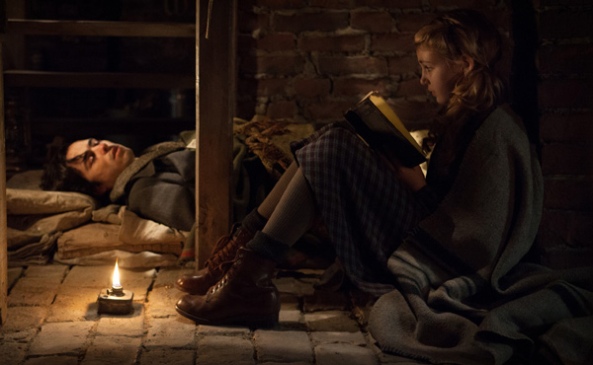There’s no rule that Nazi Germany be depicted only as gray with splashes of red swastika flags, but to see it prettied up in snow white colors for much of Brian Percival’s “The Book Thief” makes the contrasting themes a bit off-putting.
Although it gets a pass on the light-hearted and nuanced performances of its lead actors, “The Book Thief” forms an unholy marriage between historical melodrama and a childlike fable. It feels overly precious, and it becomes both tragic and whimsical to a fault.
Percival’s film is based on Markus Zusak’s novel of the same name, and it follows a little girl named Liesel (Sophie Nelisse of “Monsieur Lazhar”) as she’s being dropped off with a new German family. Her mother is a Communist on the run and her younger brother has just passed away from illness, and now Liesel is alone with her new father and mother, Hans and Rosa (Geoffrey Rush and Emily Watson).
Liesel cannot read and slowly begins to learn with her father, but when Hans takes in a sickly Jew on the run named Max (Ben Schnetzer), Liesel befriends him and helps nurse him back to health by reading him banned and stolen books. Continue reading “The Book Thief”
